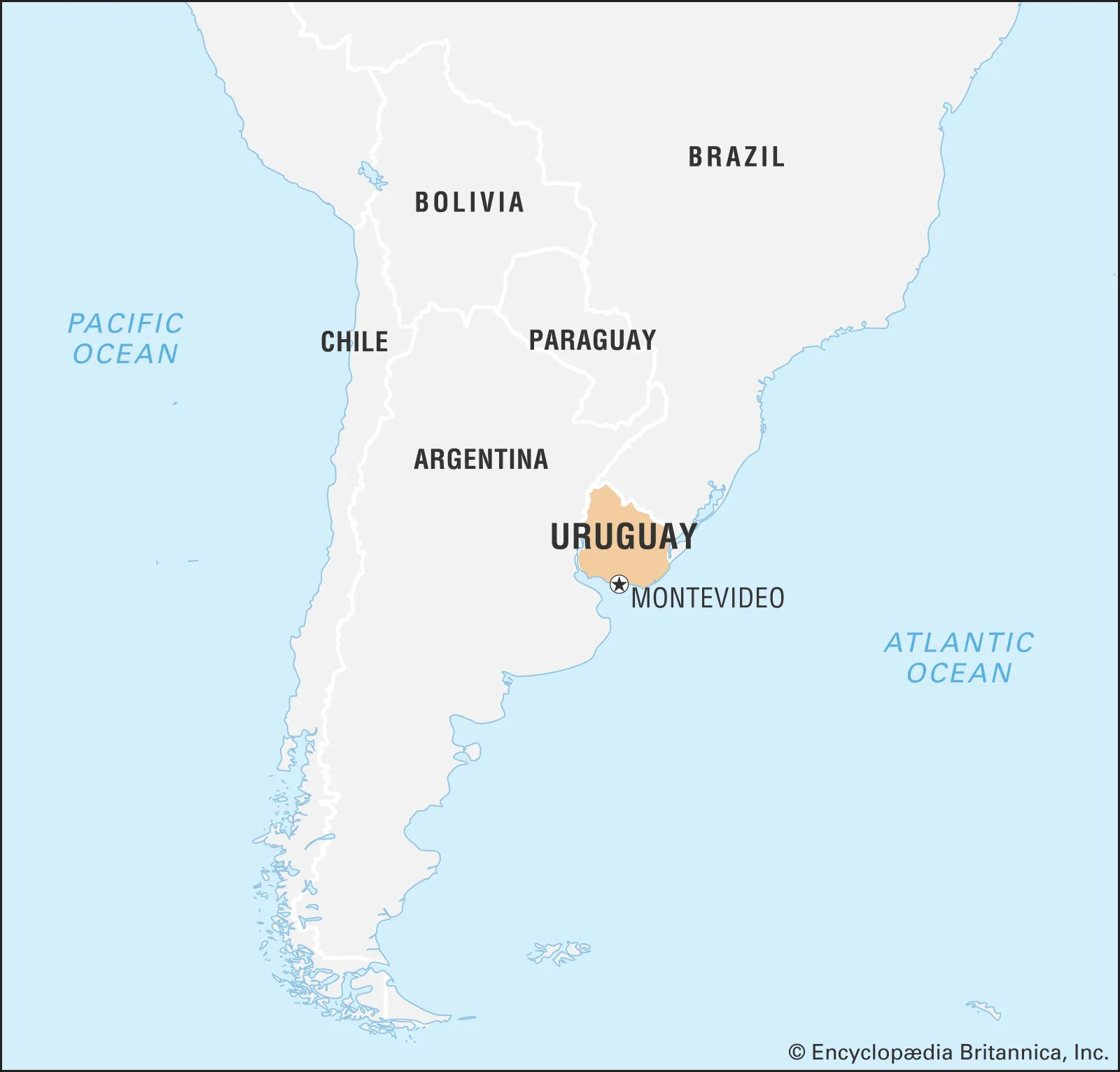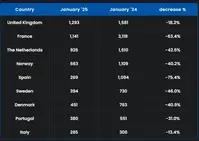- 22
- 65
President Trump on Tuesday signed an executive order declaring that only the attorney general or the president, instead of federal regulators or bureaucrats, can speak for the U.S. when interpreting the meaning of laws carried out by the executive branch.
Oh wait nvm it's a nothingburger. Literally nobody in the thread read the first paragraph of the article. I hate Redditors.
- 1
- 10
- 75
- 104
https://old.reddit.com/r/doordash/comments/1ipsxbs/caught_my_long_distance_boyfriend_cheating/
Summary in her own words
Going to try to summarize the comments post so far,
I believe he is cheating because he is a serial cheater
and we've had many issues with cheating in the past. We will break up for a few months, get back together, and kinda repeat.
We've been doing this for 8 years in April. He originally told me he would be here Thursday night, but told me he had a morning meeting at 6am Friday and didn't think he could make the 6hr drive to come see me and preform in this meeting. I was upset, but we talked not out and he was supposed to come Friday night/valentines day night, he was distant Valentine's Day, but said work was ready busy, I didn't think much of it, then this interaction happened:
Confirming he was at home alone, but also he has Brie for dinner which seemed… off?
Anyways, he was acting depressed, and wanting to be nice I ordered him roses and his favorite candy to his house. I told him to expect a delivery within the hour. He left this message read but did not answer. Which was … super bizarre? So I at that moment had the idea to message the door dasher asking about a second car in the drive way.
She asked if I still wanted her to complete the delivery, and I was like, uh, yes, and I'll send an extra 10$ if you loudly say " this is a gift from your girlfriend " dasher agreed, but even though she rang the door bell and knock repeatedly, the dude would not answer.
While talking to the driver, I said something like " what the heck, I've been dating this man for almost 8 years" which triggered the chat to close, I about screamed in frustration, but I did leave the dasher 20$ as a tip for her detective work.
Currently, laying in bed obsessing over this with my cats while pretending that I'm driving the 6 hours to my soon to be exs house and confronting him. If he doesn't answer by the end of this count down I'm just going message something like. " I saw what I need to see, I'm driving home" and actually have some leverage for his stupid lies when he does come around to answering me.
Shes textboming this guy and hes not replying 
Currently, I'm in my bed with my cats, but texting him every 30 min to 1 hr saying I'm making the 6 hour drive to his place.
I'm going to pretend I drove up, saw the car, and drove home, and if he tries to fact check me im going to use the door dashers photo 😭😂
Justification
!foidmoment and !moidmoment too I guess?
Guy in question
anyway Thanks  @Vegeta for the idea to sub to /r/doordash, its a gold mine
@Vegeta for the idea to sub to /r/doordash, its a gold mine 
- Snappy : R-slur
- 22
- 148
Celina 52 Diner is a fake business/troll page that posts all sorts of AI-generated images with the hope of baiting normies. They are very good at it and sometimes catch a whopper in the form of a  as they have done with Michael.
as they have done with Michael.
How it started:
The aftermath:
Comments from the original post with the raw chicken:
1.  "I'm deleting negative comments, this is getting rediculous"
"I'm deleting negative comments, this is getting rediculous"
2.  People in on the fun
People in on the fun
Comments from the Michael Hayes post:
1.  "someone sent us his workplace, we contacted them"
"someone sent us his workplace, we contacted them"
Somehow still catching 
2.  "your chicken is clearly RAW!"
"your chicken is clearly RAW!"
lol
- 21
- 39
Most Based Comments
Basedness: 🔘🔘🔘🔘🔘
Vote vote vote people! (49)
Also, run run run for office! Start low, like a school board but just run! (28)
Basedness: 🔘🔘🔘🔘🔘
This. As a Michigander I tried getting into Canada and the requirements are insanely high. (244)
Basedness: 🔘🔘🔘🔘🔘
I feel like we are safer than most states thanks to our governor but her term ends in 2026 and the uncertainty of who will replace her doesn't help my fears and anxiety. (87)
Angriest Comments
Angriness: 😡😡😡😡😡
Angriness: 😡😡😡😡😡
Angriness: 😡😡😡😡😡
Biggest Lolcow: /u/joejackjoeyman
Score: 🐮🐮🔘🔘🔘
Number of comments: 3
Average angriness: 🔘🔘🔘🔘🔘
Maximum angriness: 😡😡😡😡🔘
Minimum angriness: 😡😡🔘🔘🔘
NEW: Subscribe to /h/miners to see untapped drama veins, ripe for mining! 
 autodrama: automating away the jobs of dramneurodivergents.
autodrama: automating away the jobs of dramneurodivergents.  Ping HeyMoon if there are any problems or you have a suggestion
Ping HeyMoon if there are any problems or you have a suggestion 
- 13
- 13
So I'm at work and I'm about to start working a different schedule than the one I've been on for the past few months. This is all well and good, and I've known about it for several months at this point. As the day of the change approaches I'm talking to my manager about some other stuff and he says "By the way what was your new schedule again? Because what you told me the last time we talked about it doesn't match what's in the system."
Turns out someone fricked up the paperwork and my new schedule in the system is slightly off from what was in the announcement months back. While slightly less convenient, it's barely different from what I was already expecting so I'm thinking okay whatever. I just really really REALLY need my time off requests that I put in forever ago adjusted to match the new schedule.
Apparently this is not a simple ask. I got pulled into chief HR's office at the end of the day and was informed that the issue had been passed all the way up to corporate legal and they were going to offer to honor the schedule I was originally presented with in the announcement "as a gesture of goodwill (please don't sue us)". I declined and made it clear that I reeeeeaaaaallly don't give a shit about the minor schedule adjustment, I just need my PTO moved. Response was "we technically still can't force that through, you'll have to get $other_department to override it for you if you decide to keep the adjusted schedule."

So now the shitty part is that I know exactly who fricked up the paperwork and I'm worried that I've made enemies out of her entire chain of command. And all for nothing, because I still don't have a guarantee that I'll get my time off. I just wanted my fricking PTO fixed.
This is at a fortune 100 megacorp (doebeit at a very low level because I am an unambitious lazy r-slur).
- 36
- 65
Just imagine having an MTX that is so fricking predatory that it makes your playerbase nostalgic for the lootbox cancer from the 2010s, and now that most of them have migrated to Marvel Rivals, you bring them back as a way of saying that you listen to your community or something  !g*mers
!g*mers
- 3
- 3
It is my dream to date and marry a rich daughter.
- 177
- 103
The actual mean IQ rank-order of these degrees, from highest to lowest:
— i/o (@eyeslasho) February 17, 2025
1. Philosophy BA
2. Literature PhD
3. Computer science BS
4. Biology master's pic.twitter.com/eskJLqJYCs
Are those IQs inferred from standardized exams? Or from actual IQ exams? I wonder if robust measurements by academic levels and disciplines have ever been made.
Do you have a source on that?
Source?
A source. I need a source.
Sorry, I mean I need a source that explicitly states your argument. This is just tangential to the discussion.
Your IQ fluctuates throughout the day and from day to day. Also, familiarity with the test can affect subsequent scores. There's no truly reliable way to quantify intelligence.
(For irrelevance: my IQ tests at 168.)
I no longer believe in IQ now that it does not matter for me.
SAT's probably not a good indicator, it's a test taken before college, what's the spread after college. And you might be able to get something interesting taking the ingest SAT scores, then comparing with the graduating SAT scores. Got me wondering where they publish that data.
Uh. Naw, neighbor.
I trust your understanding of data. Yet every PhD program in Literature seem to be 20% literature and 80% Marx, Freud, Frankfurt, Foucault, Lacan, Derrida, Butler, A. Rich, Kristeva, and a gaggle of other post-structuralists and, Gott helfe uns, 'postmodern thinkers'.
Well, to be fricking fair, you need abstract thinking to understand postmodern thought which is why so many shitlibs fail hard at it.
Also helfe or hilf (the imperative form)?
That's got its own bias. Philosophy and Lit degree holders read a lot so naturally will score high on SAT and GRE (where the math portion is pretty basic, but reading comp questions could get tricky)
lol "not fair they read a bunch"
Are these creatures self aware?
Disguss
- 36
- 78
Background: The enshittification of Argentina
This could be an effortpost purely on its own but I leave that task to our great friends from the southern hemisphere.
Argentina's July 9, 1989, Independence Day was historical for two opposing reasons. For the first time since 1928, a democratically elected president had been succeeded by another elected one—leaving aside the Peronista reelection in 1952. But this much-longed-for event happened amid feared, raving hyperinflation. (Nothing new ever happens). Stepping down was Raul Alfonsin, who had become president on December 10, 1983 following a violent military government that had taken power with a coup on March 1976, the SIXTH since 1930. 
Even though Argentina had been ridden with inflation for several decades, it still became more chaotic (proving no matter how shitty you think your positions are, it can still get shittier when it comes to economics) after a mega-devaluation and mega-tariff shock in June 1975 by the Minister of Economy Celestino Rodrigo, which infamously became known as the Rodrigazo. (Dude Spanish LeMayo)
Nine months later, after the coup, the military immediately tried to tame inflation with traditional IMF counter-cyclical measures, but to no avail. From the so-called hilariously named Rodrigazo, the country would live under what became known as a "high-inflation regime": verging on a 100 percent year rate of minimum inflation, but in most years, well over that level.
Note that In these situations, inflation almost becomes an index exchange  That is, there would be inflation because investors have priced it in already, as in inflation in future because inflation in past.
That is, there would be inflation because investors have priced it in already, as in inflation in future because inflation in past.
Pic rel: you walk into Argentina's Central Bank
So in 1978, the Argentinian government, fresh from the high off of winning the FIFA WC, introduced their most radical plan till date: la tablita
La Tablita ("the little chart") was a 1978 stabilization policy, a pre-gradual devaluation scale schedule combined with an external opening of financial and trade sectors. In the prevailing abundant, low-cost, international credit environment, large amounts of capital entered the country, pressing the national peso down, checking inflation, and cheapening imports.
Unfortunately, God hates Argentina and the retards who run Argentina hate the country even more.
@nuclearshill be like

Despite bringing down inflation, La Tablita was far from ending it. Hence, the peso appreciation became considerable, damaging domestic industrial goods.
On top of that, the foundations of this pyramid scheme, however, were highly frail. It depended on the continuous availability of cheap dollar credit in international markets,  something challenging to happen. Thus speculation against the peso grew. Spurred on by higher dollar rates and made possible by financial openness, many external and internal investors thrived on this terms of a "financial bicycle."
something challenging to happen. Thus speculation against the peso grew. Spurred on by higher dollar rates and made possible by financial openness, many external and internal investors thrived on this terms of a "financial bicycle."
To avoid the abrupt end of La Tablita, the government itself took external debt—mainly through state-owned companies—and made them available to speculative private agents or tried to gain their confidence by increasing the stock of international reserves.
The Arabs coming out to nuke Argentina in the ass 
After the 1979 Volcker shock because of the Arab oil embargo crisis, that raised dollar interest rates, the mounting dollar debt cycle became explosive. The dollar shortage led to a run on banks and a financial crisis in 1980, which the government had to save with rediscounts. The government established an official guarantee on deposits and, in February 1981, abandoned the Tablita schedule. Following an exceptional 10 percent devaluation of the peso, a new monthly devaluation chart was announced— greater than the original one, but insignificant in view of the accumulated appreciation in the exchange rate. In March 1981, it ended any kind of Tablita scheme and a new 30 percent devaluation was applied.
After years of making new deals (with the US; mercosur, with the IMF) and failing to keep any of the promises they made and finally coming to terms with its thirdworldness, in April 1988, the government declared a moratorium on the service of foreign debt. This led to losing the support of the IMF. Hence, the only resource of fresh dollars left was the World Bank. (aka 3rd world support).
The Spring Plan launched just months before the 1989 election, was a stabilization program conceived with the modest purpose of avoiding the hyperinflationary outburst before the presidential election in May 1989. Without being able to adjust tariffs because of their inflationary effects and without being able to tax, the government made a price agreement with the leading companies, which resulted in the reduction of the value-added tax from 18 percent to 15 percent, which led to a 0.5% drop off in GDP. In mere months.
However, the election itself was the main factor of instability. The three leading presidential candidates (including Eduardo Angeloz, from the official party) called for the exchange rate liberalization. Peronist Carlos Menem,  who widely led the polls, defied any justification of restraint, stating that it would interrupt external payments for 3 to 5 years, cut taxes 50 percent and give out a salariazo (100 percent increase in wages), among other populist and nationalist measures. Thus, exchange rate and fiscal instability are combined with political uncertainty. In retrospect, the only chance of The Spring Plan to reach its goal resided in the remote chance of a reversal of election polls in favor of the official candidate. Otherwise, with a foreseeable triumph of the opposing candidate, announcing a populist and nationalist platform, an abrupt run of funds to the dollar was unavoidable.
who widely led the polls, defied any justification of restraint, stating that it would interrupt external payments for 3 to 5 years, cut taxes 50 percent and give out a salariazo (100 percent increase in wages), among other populist and nationalist measures. Thus, exchange rate and fiscal instability are combined with political uncertainty. In retrospect, the only chance of The Spring Plan to reach its goal resided in the remote chance of a reversal of election polls in favor of the official candidate. Otherwise, with a foreseeable triumph of the opposing candidate, announcing a populist and nationalist platform, an abrupt run of funds to the dollar was unavoidable.
Fearing the inevitable the World Bank withdrew its support in January 1989.
The consumer price index, around 7 percent per month during the last quarter of 1988, doubled in March 1989 and again in April. Two months later, it was out of control.
Menem won in the midst of all this pandemonium. The handover of command was planned for December, but the outlook for the next five months was chaotic. Hence, the succession was brought forward for July 8.
The failed attempts to privatize several companies, the continuous erosion of public income due to inflation, the freezing of wages with high unemployment that intensified social discontent, with some goods-shortage, additional power cuts due to droughts that affected the hydroelectric plants, and the appearance of looting in Greater Buenos Aires, all combined to fuel the severe crisis.
With the change of government, inflation fell rapidly, but only momentarily. Amid prices still going out of control, a temporal confiscation of bank deposits was made, forcedly exchanging them with government treasury bonds (the Bonex plan). After two further hyperinflationary outbreaks between 1990 and 1991, new economic minister Domingo Cavallo could finally curb rising inflation with a radical currency board-style convertibility of the Argentinian peso (rebranded as The Austral in the mid 80s)  to the American dollar.
to the American dollar.
The Uruguay Angle
What is an Uruguay?
Like all normal Americans, I had zero knowledge where Uruguay was, how much does one Uruguayan foid cost etc important questions before I started reading about them. Looking at them, few of us would envy them.
As Menem's Argentina was finally realizing its retarded policies, like Menem's Argentina during the 1990s, Uruguay had embarked upon a full-scale liberalization of its economy through liberalization of the capital and current account on the balance of payments. Uruguay's banking system was based on local private-owned banks, foreign banks, and large public banks.
During the 1990s, the Uruguayan economy performed relatively well; by the decade's end, it was a middle-income country with a per-capita income of US$6000. In 1999 the Uruguayan economy suffered a significant economic recession that resulted in multiple implications for the country's fiscal debt, the debt-to-GDP ratio, and the profitability and liquidity of the banking sector.
The twin devaluation of the Brazilian and Argentinian currency near Y2K hit the competitive position of Uruguay's exports and led to a currency appreciation. Like any other 3rdworldie, it immediately set conditions to terminate the exchange rate commitment of the Uruguayan currency that had helped stabilize the public debt during the 1990s. As a result of the 1999 prolonged recession, it was registered first as a major fiscal crisis, recession-triggered revenue reductions led the government deficit to surge from 38 percent of GDP in 1998 to 58 percent of GDP by 2001. By 2001 the public sector debt amounted to roughly US$107 billion.
This consecutively increased the country's dependence on foreign capital and investors: the deepening of the public deficit caused by the fiscal crisis forced Uruguay to issue foreign currency-denominated bonds and debt certificates to finance the Uruguayan debt. 
By December 2001, both liabilities and assets of the Uruguayan banks were highly dollarized. (Nearly 83% of public debt was in foreign currency). For reference if the US had that problem today, that would mean nearly 31 Trillion Dollars of debt in Chinese/Japanese/Euro currencies.
On the liability side, liquid foreign currency deposits amounted to 90 percent of total deposits, of which 47 percent were deposits by non-residents. On the asset side, about 75 percent of total loans were denominated in foreign currencies. By the time the crisis began, the two largest public banks (Banco de la Republica Oriental del Uruguay (BROU) and Banco Hipotecario del Uruguay (BHU)) (ching chong names, just remember BROU and BHU) lay in critical financial condition because their ratio of non-performing loans to total loans was on average 39.1 percent, compared to 5.6 percent for the private banks. 
This chicanery along with growing share of total debt financed through issuing debt certificates abroad and in foreign currencies made the country and its banking sector extremely vulnerable to external shocks.
This came in the form of an Argentine shock
Throughout the postwar decades, Brazil and Argentina were the main trading partners of Uruguay. Argentina, even more than Brazil, was tied to the direction of the Uruguayan economy. As was the case with the early 1980s crisis, any time Argentina abandoned its price stabilization plan, the GDP of Uruguay contracted substantially. In contrast, any time Buenos Aires GDP declined, Uruguay's GDP grew modestly. (Exports needed, latina foids, if one fails, the other has to step up)
As the banking sectors of the two countries became interdependent. In particular, Argentinean savers and investment companies placed large amounts of funds with Uruguayan private and publicly owned banks. (Argentinians trusted their government so little, they were willing to invest in a tiny ass country, so much so that in time they became that country's main creditor  ) The Uruguayan banks had become safe financial outlets for Argentinean savers. By the end of 2001, 45 percent of Uruguay's total deposits came from Argentinean investors.
) The Uruguayan banks had become safe financial outlets for Argentinean savers. By the end of 2001, 45 percent of Uruguay's total deposits came from Argentinean investors.
Not only this, buy at the time, the two national public banks (BROU & BHU. Remember them? This is them now. Feel old yet?) were owned by Argentinean financial groups. How you call something that is neither nationalized nor publicly owned a national public bank beats me. But that's how definitions work in Uruguay. And these were not the only banks to have their shit rocked. All the largest Uruguayan banks were primarily exposed to either Buenos Aires' public debt or the largest Argentinean banking groups.
In December 2001, the Argentinean authorities approved capital controls and deposit freezes on Argentine nationals. This decision, coupled with the termination of Buenos Aires' currency pegging  to the US dollar, prompted many Argentinean investors to withdraw funds from Uruguay, thus plummeting its financial sectors into a liquidity crisis. The two largest private banks of Uruguay, Banco de Galicia Uruguay and Banco Comercial, were hit the most by capital outflows. Banco de Galicia Uruguay, then the second largest Uruguayan bank by assets, was a subsidiary of Banco de Galicia, the largest Argentinean group. (Just sell the entire nation to Argentina faggots)
to the US dollar, prompted many Argentinean investors to withdraw funds from Uruguay, thus plummeting its financial sectors into a liquidity crisis. The two largest private banks of Uruguay, Banco de Galicia Uruguay and Banco Comercial, were hit the most by capital outflows. Banco de Galicia Uruguay, then the second largest Uruguayan bank by assets, was a subsidiary of Banco de Galicia, the largest Argentinean group. (Just sell the entire nation to Argentina faggots)
As its banking activities revolved by and large around taking deposits from Argentinean banks and companies and lending to the same type of clients, the freeze of deposits and the enforcement of capital controls hit Banco de Galicia Uruguay, which suddenly suffered from a liquidity crisis. This led the Central Bank of Uruguay to suspend its activities in February 2002. As much as Banco Galicia, Banco Comercial, the largest private bank of Uruguay, was overexposed to Argentine's borrowers: it held a large amount of the Argentinian government's public debt. It was a significant creditor to Grupo Banco General de Negocio, a leading financial holding in Argentina. In 2002, this two-fold overcommitment to Argentina was the leading cause of the liquidity crisis that shook Banco Comercial that year.
Banco is a funny word NGL 
By March, 12 percent of total bank deposits had been withdrawn, mostly by non-residents. This downward sloping trend continued even after the implementation of measures by the government and the International Monetary Fund (IMF) to forestall the liquidity crisis. By May 2002, 18 percent more deposits had been withdrawn; this time, non-resident withdrawals were paired with money cashed by residents from public banks.
Why should Argentinians have all the fun?
- some Uruguayan(before jumping off a bridge after seeing an Argentinian doing it)
This faggotry reached its crisis point in July when the run on dollar deposits was coupled with a rush to cash local currency deposits. By mid-summer, most private banks had become insolvent; on the other hand, the public banks, though liquidity support provided by the IMF amounted to US$1,1221 million as of August 2002, suffered from significant liquidity imbalances and extremely precarious balance sheets.
In July, Uruguay's foreign currency reserves, which by December 2001 amounted to US$3.1 billion, reached the lowest level ever of US$650
$650
The crisis that erupted in 2002 had striking side effects on the Uruguayan currency, foreign exchange reserves, and the country's capability to service the public debt. Rather than merely affecting the liquidity position of Uruguayan private banks, massive capital outflows reduced the country's foreign exchange reserves.
Assuming the country's international reserves as of December 2001 as a benchmark, by the second half of 2002 they had declined by 80 percent. This decline in international reserves jeopardized the exchange rate commitment and, thus, the likelihood of servicing the public debt. (the only part that any government cares about beyond optics) This trajectory of the financial crisis led the Uruguayan authorities in July 2002 to halt the exchange rate commitment and to approve a 27 percent currency devaluation that led exports to temporarily bounce back by the end of 2002. But devaluation has a downside in terms of debt sustainability.  The termination of the Uruguayan exchange rate commitment and its devaluation set the national debt to unsustainable limits.
The termination of the Uruguayan exchange rate commitment and its devaluation set the national debt to unsustainable limits.
The recurring deposit withdrawals that started in the first half of 2002 led to a credit crunch that triggered systematic curtailing of credit by private banks to the non-banking sector. During that year, banking credit to the non-financial sector contracted by 37 percent. Consecutively the GDP contracted by about 10%.
How the crisis was contained
Since the beginning, the crisis appeared to be a matter of liquidity shortage affecting a limited section of the banking system. Therefore, liquidity assistance to either the largest private banks of Uruguay or the foreign-owned banking institutions, as well as the public banks, represented an unfinished line of economic intervention by the Central Bank of Uruguay, the government, and the IMF, the three leading institutions that came to the rescue. Amidst a further deepening of the banking liquidity crisis in early summer, in July 2002 a new financial facility was established, the Fondo para la Fortificacion del Sistema Bancario, which amounted to US$2.5 billion.
it's okay little fella, here's some change. Keep it 
Notwithstanding the scale of this fund in July, both foreign exchange reserves and the liquidity of private banks got worse. On July 30, this Fondo's financial operations were suspended and a bank holiday began.
Crisista time? More like fiesta time 
Shortly after the removal of the bank holiday on August 5, 2002, a run on deposits began again. Amidst this seemingly neverending crisis, the government approved a law that, by combining an effort by the state finance with financial assistance provided by three leading international economic institutions—the IMF, the International Bank for Reconstruction and Development (IBRD), and the Inter-American Development Bank (IADB)—focused on both protecting dollar-denominated deposits in the country and initiating a suspension of the operations of the three largest private banks that paved the way for their restructuring or liquidation.
total banco destruction 
The new law made provision for having the BROU absorb all the foreign currency deposits and time deposits held at BHU and for suspending the operations of Banco Comercial, Banco de Montevideo-Caja Obrera, and Banco de Credito. In addition, it set conditions for their restructuring or liquidation in the future. By the beginning of fall 2002, this set of measures led to a decline in total withdrawals and a resurgence of deposits by residents, which by 2005 had returned to their July 2002 level. During the fall of 2002 and 2003, the second set of crisis management measures was undertaken to restructure public banks' debt and strengthen the structure of banking regulation and supervision in Uruguay, which was historically not well structured.
A selected number of loans by BROU, which throughout 2002 had lost roughly 66 percent of total deposits, were absorbed by a newly created state entity, while the bank's lending operations were redirected to peso-denominated operations. A credit risk-management mechanism was established to reduce non-performing loans. The BHU, whose dollar-denominated deposits accounted for 77 percent of total deposits while 94 percent of total loans were peso-denominated, was severely rocked by the peso's devaluation. The bank was radically restructured by the Ley del Fortalecimiento del Banco Hipotecario del Uruguay in December 2002, limiting its banking operation to housing saving plans and issuing of a limited number of mortgages, but prevented the BHU from taking deposits.
Concerning the private banks, the three largest institutions were liquidated. The Banco Comercial and Banco Montevideo Caja Obrera were placed under liquidation, and a new financial institution, Nuevo Banco Comercial, was established. The purpose of this new institution was to issue Certificates of Deposits to finance the acquisition of the assets of the two banks under liquidation.
Concerning the Banco de Credito, the third largest private bank, the government recapitalized it several times and then, in February 2003, placed it under liquidation.
This taking a chainsaw action on the financial side of the banking crisis was paired with legislative initiatives to strengthen the supervisory and regulatory system charged with presiding over the national banking system.
Another law was passed to strengthen the Central Bank of Uruguay so as to not leave it as toothless as the Argentinian beggar asylum of a CB.
That new law imposed new requirements on banking activities that included higher reserve requirements for deposits by non-resident investors, several rules to reduce foreign exchange risks and improve lending-decision making by national banks, and compulsory disclosure by banks of relevant financial information about their borrowers' credit solvency.
By the end of 2002, the liquidity crisis that hit the banking system had triggered a contraction of total bank deposits by residents by about 46 percent and a reduction of total deposits by foreign investors of 65 percent. As a result of the crisis, the country's GDP declined by 11 percent, whereas total public sector debt grew by 26 percent.
In this situation, many international investors (read US, nobody except the US government and investors knew about Uruguay outside Latin America) envisaged the possibility of a sovereign default in the wake of what happened in Argentina.
But credit (kek) where credit's due. The financial measures adopted to restructure and liquidate the banking system, coupled with several regulatory and supervisory initiatives aimed at preventing the country from future crises triggered by external shocks, placed the country on track to full recovery and prevented Uruguay from suffering terrible consequences in terms of inflation and deficit.
By 2003 GDP had risen by over 12 percent, inflation had declined to 10 percent, the financial system's deposits had regained US$800 million, and the primary surplus had once again soared to 4.1%.
Moral of the story - To this day the Uruguayan CB still has certain capital controls on investors from Argentina that it has not placed on anyone else. 
- 10
- 27
- 1
- 11
- 54
- 73
Elon can’t fuck bc of a botched penis implant so the only way the wealthiest man in the world gets off is by assembling this brood of Musklings w/ technocratic names birthed via various artificially inseminated sycophants pic.twitter.com/6f3qxbMlf1
— ParaPower Mapping (@KlonnyPin_Gosch) February 16, 2025
Incels  this is what happen
this is what happen  when you fakecel and dont marry
when you fakecel and dont marry  a virgin
a virgin 
- 5
- 7
hello I want to use site but there was monkey mand na LOUD music and i didnt want more viruses on my computer? are the hackers still destryoging the site my natzis!
- 1
- 16
- 10
- 18
- 11
- 23
- 2
- 6
- 5
- 15
- 37
- 43
https://www.motor1.com/news/749660/tesla-sales-results-january-2025/
To explain Tesla's current situation, you can also look at what is happening in California, the largest electric car market in the United States. For years, Elon Musk and Co. dominated the market with ever-increasing numbers. But in 2024 they will see a decline.
In germany there is also a drop by 60% while all EV's sold 50% more. His german market share in new EV cars is now around 5% 
https://old.reddit.com/r/fuckcars/comments/1irzp3s/tesla_sales_collapsing_in_europe/

























 turns into a
turns into a  asking the Doordash driver to check if her long distance boyfriend is cheating
asking the Doordash driver to check if her long distance boyfriend is cheating  on her
on her
















 into sending death threats and wishing his wife and children get r*ped by migrants. The page happily posts this for all to see, including at his place of work lol
into sending death threats and wishing his wife and children get r*ped by migrants. The page happily posts this for all to see, including at his place of work lol 





























 Suddenly Have a Lot of
Suddenly Have a Lot of 
 Concerns About IQ When They Become the BIPOC
Concerns About IQ When They Become the BIPOC 







































 i like this marsey its the best
i like this marsey its the best  announced that the Bibas children, who were kidnapped alive, have died in captivity.
announced that the Bibas children, who were kidnapped alive, have died in captivity.
 it might actually
it might actually  be genuinely over for Gazans lmao
be genuinely over for Gazans lmao









